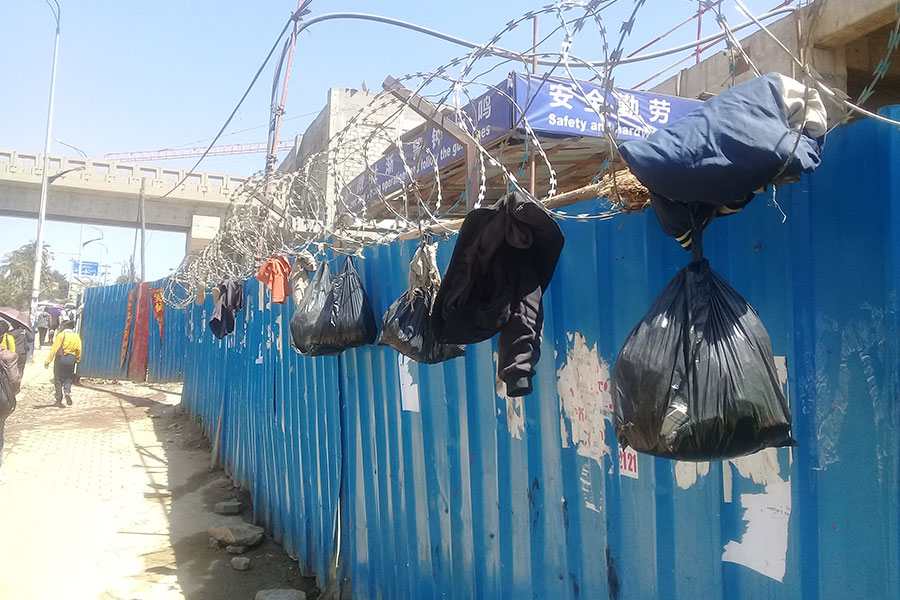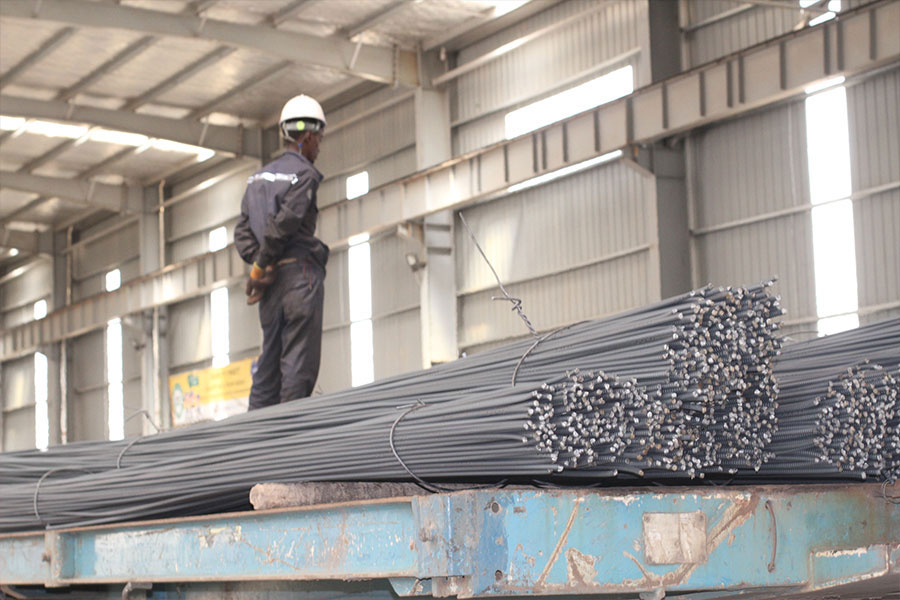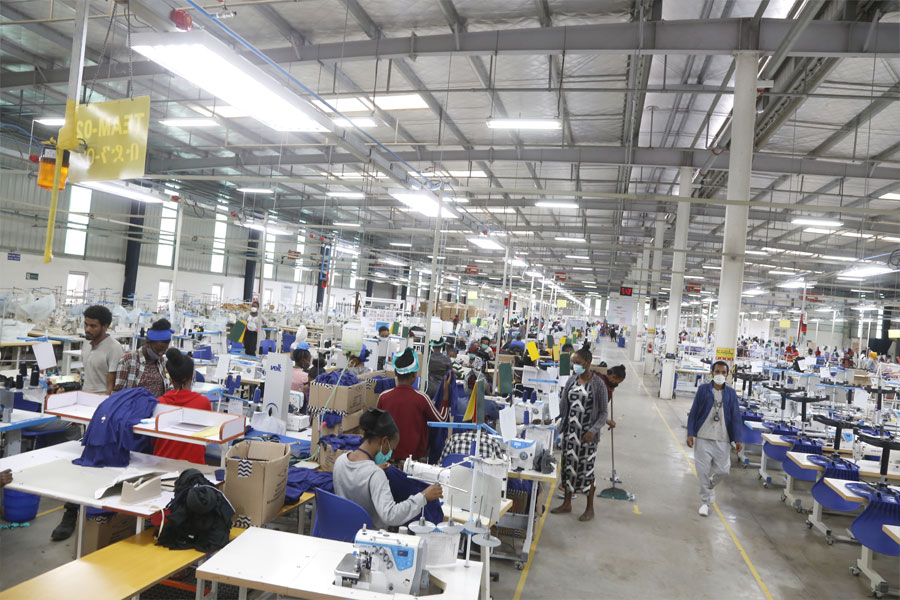
Radar | Jun 19,2021
Apr 26 , 2019
By Eden Sahle
I was watching a football game last Saturday evening when a loud cry was heard in our neighbourhood. We went out of the house and found other neighbours that were as curious about the cry as we were. Together we went to investigate the source of the noise, which turned out to be coming from a house rented by non-nationals.
A woman kept screaming, “He is killing me!”
Intimidated by the unclear situation, most of us were on the phone trying to reach the police, while others heavily knocked on the gate of the three-storey house. Given that the tenants rarely ever interacted with members of the community, probably because they were non-nationals, meant that all types of speculations were flying around.
The gate was finally opened, and the woman that was screaming turned out to be a domestic helper. The tenants explained that they caught her red-handed stealing valuable and personal items, a claim we verified from the unharmed domestic worker. She screamed when her employers told her she was to leave the house in the morning after police were informed about the alleged theft incident. We returned to our respective homes leaving the matter to the police.
The relationship between domestic workers and employers is open to abuse, murder and theft. It is not uncommon to hear of children being sexually and physically abused by domestic helpers. Adults are not immune. Apart from probable theft, they constantly worry about providing excessive incentives to persuade caregivers to stay longer.
Abuse and crime are also perpetrated by employers. Domestic helpers can become victims of sexual, psychological and physical abuse from their employers who are convinced that they have the right to insult, intimidate and belittle such workers. This is especially the case in low-income households. Although domestic workers face higher exposure to sexual crimes, they do not file charges due to the social stigma, lack of awareness, isolation and the need to continue earning.
And there are brokers and employment agencies that worsen the situation, especially in trafficking young girls and women from rural areas, away from their family and education, with the promise of a better life.
Many domestic workers are also temporarily working locally while searching for a job in the Middle East. This may make the business of brokers lucrative, but employers face instability caused by high turnover of domestic workers. It is not unheard of for domestic workers to change places of work for a better payment, without notice, through the initiation of brokers who want to collect commissions from new employment.
The law does not facilitate a stable domestic labour environment for domestic workers. The labour law does not have a provision for domestic workers in its scope of application. Such glaring loopholes prevented employers from respecting workers’ rights and from holding domestic workers liable to contractual obligations.
What should not be overlooked is the large contribution of domestic workers in sustaining and supporting families and individuals, enabling them to enter the labour market. It is also an opportunity for employment.
Many nations, including several African countries, have adopted the International Labour Organization's (ILO) Convention for Domestic Workers. Ethiopia needs to make a paradigm shift by regulating and extending labour rights to domestic workers with the aim of rescuing it from continuous abuse.
The mistreatment coming from employers, and often reciprocated by domestic workers, persists in the absence of guidelines for the treatment and conditions of domestic workers in Ethiopia. It is a matter that will not address itself.
The country will do a great service to workers and employer’s personal, social and economic circumstances if it introduced a domestic worker’s regulations. Domestic workers have constitutional rights to claim equal protection under the law without discrimination.
PUBLISHED ON
Apr 26,2019 [ VOL
20 , NO
991]

Radar | Jun 19,2021

Radar | Dec 04,2022

My Opinion | Apr 20, 2025

Radar | Feb 04,2023

Fortune News | Oct 21,2023

Fortune News | Sep 30,2023

Life Matters | Jul 25,2020

Fortune News | Nov 21,2018

Editorial | Aug 18,2024

Fortune News | May 11,2024

My Opinion | 131586 Views | Aug 14,2021

My Opinion | 127942 Views | Aug 21,2021

My Opinion | 125917 Views | Sep 10,2021

My Opinion | 123541 Views | Aug 07,2021

Dec 22 , 2024 . By TIZITA SHEWAFERAW
Charged with transforming colossal state-owned enterprises into modern and competitiv...

Aug 18 , 2024 . By AKSAH ITALO
Although predictable Yonas Zerihun's job in the ride-hailing service is not immune to...

Jul 28 , 2024 . By TIZITA SHEWAFERAW
Unhabitual, perhaps too many, Samuel Gebreyohannes, 38, used to occasionally enjoy a couple of beers at breakfast. However, he recently swit...

Jul 13 , 2024 . By AKSAH ITALO
Investors who rely on tractors, trucks, and field vehicles for commuting, transporting commodities, and f...

Jun 28 , 2025
Meseret Damtie, the assertive auditor general, has never been shy about naming names...

Jun 21 , 2025
A well-worn adage says, “Budget is not destiny, but it is direction.” Examining t...

Jun 14 , 2025
Yet again, the Horn of Africa is bracing for trouble. A region already frayed by wars...

Jun 7 , 2025
Few promises shine brighter in Addis Abeba than the pledge of a roof for every family...

Jun 29 , 2025
Addis Abeba's first rains have coincided with a sweeping rise in private school tuition, prompting the city's education...

Jun 29 , 2025 . By BEZAWIT HULUAGER
Central Bank Governor Mamo Mihretu claimed a bold reconfiguration of monetary policy...

Jun 29 , 2025 . By BEZAWIT HULUAGER
The federal government is betting on a sweeping overhaul of the driver licensing regi...

Jun 29 , 2025 . By NAHOM AYELE
Gadaa Bank has listed 1.2 million shares on the Ethiopian Securities Exchange (ESX),...